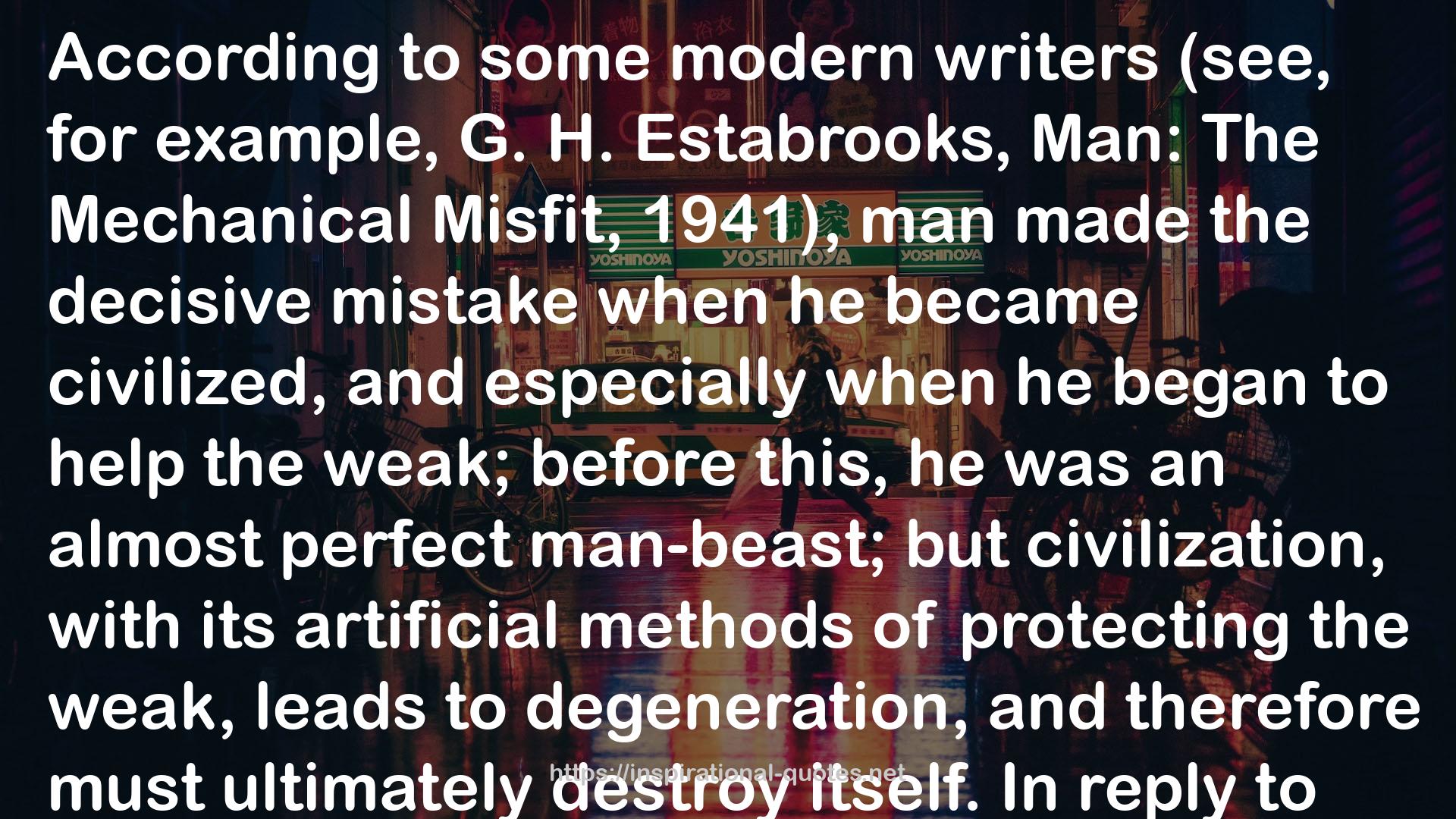" According to some modern writers (see, for example, G. H. Estabrooks, Man: The Mechanical Misfit, 1941), man made the decisive mistake when he became civilized, and especially when he began to help the weak; before this, he was an almost perfect man-beast; but civilization, with its artificial methods of protecting the weak, leads to degeneration, and therefore must ultimately destroy itself. In reply to such arguments, we should, I think, first admit that man is likely to disappear one day from this world; but we should add that this is also true of even the most perfect beasts, to say nothing of those which are only ‘almost perfect’. The theory that the human race might live a little longer if it had not made the fatal mistake of helping the weak is most questionable; but even if it were true—is mere length of survival of the race really all we want? Or is the almost perfect man-beast so eminently valuable that we should prefer a prolongation of his existence (he did exist for quite a long time, anyway) to our experiment of helping the weak? "
― Karl Popper , The Open Society and Its Enemies
